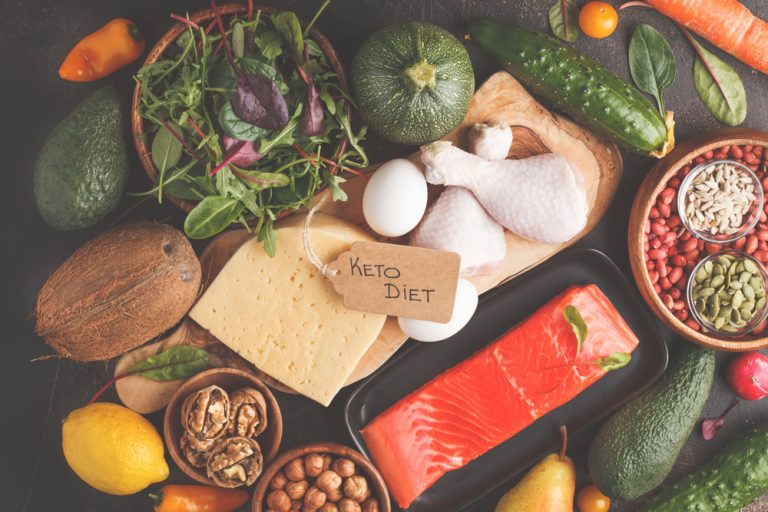Recently, breakfasts in the form of protein and fat have become an inherent element of a large portion of people interested in nutrition. Does their reputation have any support and it is worth introducing them into the menu?
Protein-fat breakfast - why you should care?
The presented breakfast has gained popularity based on assumptions, selectively selected physiological relations and limited scientific evidence. The first argument concerned antagonism of insulin and cortisol. It was claimed that if we consume carbohydrates, we will increase glycemia and insulin ejection. Cortisol, which secreted, among others according to the daily cycle, it reaches its peak in the morning. Enthusiasts of protein-fat breakfasts put together these facts in the assumption that by consuming carbohydrates in the morning, the release of insulin will lead to a decrease in the level of cortisol, which would result in drowsiness. Such a belief, although logical, is not exactly what it is. The problem is that a meal excluding carbohydrates, but based on a higher supply of protein and fats, can also lead to a surprisingly high insulin growth rate of. I will say more, a meal rich in carbohydrates does not have to be particularly insulinogenic . In addition to this, counterpoint can be drawn, including physiological. The level of cholecystokinin increases more after consuming fats than carbohydrates. Its high level is related to the subjective feeling of drowsiness. Is there anything to worry about?
Nocebo effect ?
It is worth noting that a large percentage of people began to feel a negative mood after eating breakfast with a higher carbohydrate share, only when the title meals became fashionable and the claims were made. Such behaviors can most often be explained by the nocebo effect, because they usually do not cause problems of this type.

And what about the reduction of body fat?
As a second argument, pulling the aspect of cortisol and insulin, it is said to limit the loss of fat stored. Such a concept, however, has no support in intervention and observational studies, except for individual studies. These publications, however, have a lot of restrictions, so apart from speculating, it is difficult to provide specific data to prove the superiority of protein-fat breakfast.
Will such a strategy be reasonable, although in people with insulin resistance ?
This strategy is often recommended for people with impaired glucose and insulin management. This concept, however, has weak evidence in literature. Moreover, there are works where such a strategy showed some adverse effects on glycemic control. In a randomized crossover study Kessler K. et al. unprotected men took part. They were randomly assigned to two isoaloricians , four-week HF/HC diets - where participants eat fat-rich meals until 13:30, while between 16:30 and 22:00 they reached for foods with higher carbohydrates and HC/HF - where the situation looked exactly the opposite. As it turned out, people with impaired glucose tolerance had an adverse effect on glycemic control during HF/HC interventions. However, there is still little research in this matter.
The Protein-fast breakfast, however, is much more sumptuous ...
Another argument concerns the longer satiety after a meal consisting of protein and fats, and it can actually be hit. However, this is usually due to the higher supply of protein compared to a carbohydrate-based meal. In addition, fats, by delaying the rate of gastric emptying can prolong the period of satiety. At first glance, it may seem that the title meal has an advantage over its sugar equivalent. It is worth noting, however, that by arranging a balanced meal based on carbohydrates, you can also take care of its satiety. Adequate supply of fiber or protein are key, though not the only aspects of. It seems that when a high-carbohydrate or high-fat meal is properly composed with an equal supply of protein and calorific value, both with controlled consumption and unlimited intake - a meal with a higher supply of carbohydrates caused a greater feeling of fullness in the stomach.
When to choose protein-fat breakfast?
The final settlement depends mainly on the preferences and type of diet used. If you can not imagine breakfast without avocados or eggs, protein-fat breakfast can be a sensible option. However, it will not be equally good choice for a person who has a large number of carbohydrates to eat during the day. Limiting their consumption during breakfast will only be a hindrance. The assumed carbohydrate requirement may not be met, which often results in a decrease in exercise capacity, especially when the training unit is in the morning hours.
Summary
Do not be afraid of carbohydrates in the first meal and they can appear in it as much as possible. When making decisions, it is worth paying attention to the preferences and the source of energy prevailing in the diet.






